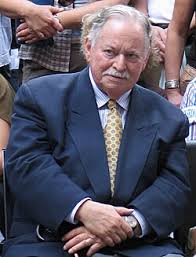
The Legacy of Jacques Parizeau
Jacques Parizeau, who passed away in 2015, was a formidable figure in Quebec’s political landscape and remains a prominent symbol of the province’s separatist movement. As the premier of Quebec from 1994 to 1995, Parizeau played a pivotal role during one of the most critical periods in Quebec’s quest for sovereignty. His leadership during the 1995 referendum was marked by impassioned speeches advocating for Quebec’s right to self-determination.
A Strong Advocate for Sovereignty
Parizeau’s political career began in the 1960s, culminating in his presidency of the Parti Québécois (PQ), a party advocating for Quebec’s independence from Canada. His tenure as premier was defined by a deep commitment to strengthening Quebec’s cultural identity and economic power. Under his leadership, the PQ proposed a plan to achieve sovereignty through a referendum, which culminated in the 1995 vote.
The 1995 Referendum: A Defining Moment
The 1995 referendum was a watershed moment for Quebec, drawing national and international attention. Parizeau’s campaign emphasized that Quebecers needed to take control of their destiny. His passionate rhetoric and conviction resonated with many, yet the referendum ultimately resulted in a narrow defeat for the separatist camp, with 50.58% voting against sovereignty. Despite this setback, Parizeau’s influence on Quebec nationalism is still acknowledged and debated today.
Reflections on His Legacy
Following his resignation after the referendum, Parizeau continued to engage in political discourse, providing commentary on Quebec’s evolving political climate. He remained an intellectual beacon for the sovereignty movement until his death in 2015. His contributions have sparked discussions on identity, discretion, and governance in Quebec, and his vision of an independent Quebec continues to inspire new generations of politicians and activists.
Conclusion
Jacques Parizeau’s legacy endures as a fundamental component of Quebec’s political narrative. His life’s work revolved around the belief in Quebec’s right to self-governance, significantly influencing how quebecers view their place within Canada. As debates surrounding sovereignty surface again, the insights and actions of leaders like Parizeau remain relevant, symbolizing the ongoing struggle for identity, autonomy, and unity within Quebec. Those interested in the political dynamics of Canada must consider Parizeau’s role in shaping contemporary discussions around federalism and provincial empowerment.



